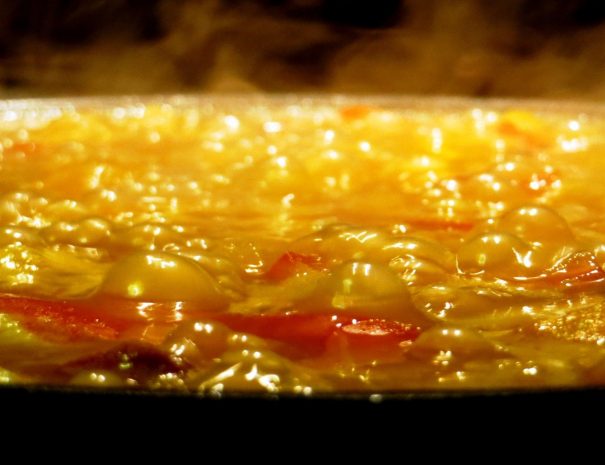
Best paella in Barcelona
Eating paella can be a pleasure, but also a pain if the wrong place is chosen. This is a post to ensure you enjoy paella in Barcelona during your stay. … Read More
In this post, we have put together 3 very interesting Spanish cheeses that each have something unique and special about them, in addition to being absolutely delicious.
There is a cheese for everyone here, as we highlight the most famous cheese of Spain, Manchego, alongside the lesser well known Mahón from Menorca and Torta del Casar from Extremadura. Each unique, we hope that you enjoy discovering these cheeses through this article and that you become inspired to try one at home, perhaps paired with a glass of Spanish wine. Some of these cheeses are tasted during a tapas tour in Spain.
Queso Manchego (D.O.P.), or Manchego cheese as it is translated into English, is one of the most emblematic of all Spanish cheeses. Elaborated with Manchegan sheep milk, Manchego is sharp and intense in flavour, with a spiciness that increases with maturity. There are various stages of maturity available, depending on your tastes: Semi cured (3 months) is supple and has flavours of fruit, grass and hay; cured (6 months) has caramel and nutty aromas; and viejo (1 year) is crumbly and sweet.

One way to recognise Manchego is by its traditional, distinctive rind. Although inedible, the rind has a distinctive herringbone basket weave pattern pressed into it. This tradition comes from the grass molds that used to be used to shape the cheese, however in reality nowadays the molds are made of plastic. Depending on whether this traditional ear wheat pattern is pressed onto the top or bottom of the cheese wheel, this can signify a difference in the ageing period.
Manchego can make a great start to a meal as an aperitivo. A great combination to try with Manchego are nuts, such as walnuts, or almonds as are particularly popular in Spain.
Manchego also serves very well as an after dinner addition. Traditionally served with membrillo (quince jam) at the end of a meal, this fine combination matches very well with Spanish dessert wines or sherry from Jerez (such as fino, amontillado or dry oloroso wines). The name Manchego means literally produced in la Mancha. La Mancha, land of Don Quixote and the world´s largest vineyard extension. You can discover more about this region in our Don Quixote wind mills tour from Madrid.
Torta del Casar (D.O.P.) is a cheese named after its birthplace, Casar de Cáceres. This cheese has a rich, slightly salty taste, and is complemented furthermore by a very distinctive, bitter taste. This comes from cardoon, a wild thistle, which is used in the elaboration of the cheese. This element causes the cheese to soften, as opposed to harden, as it matures.
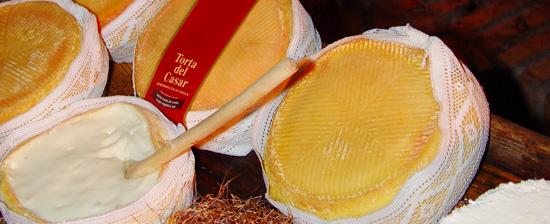
Something that makes Torta del Casar even more distinctive is the breed of sheep that produces the milk for this cheese. Due to having such a low yield of milk, it can take a whole herd of sheep to make 1kg of Torta del Casar cheese.
Torta del Casar has an ageing period of at least 60 days, in which it develops a soft, creamy, spreadable, almost runny inside and a semi-hard yellow rind. Younger cheeses will be harder, and more mature cheeses will be softer. Because of its unique texture and taste, a mature Torta del Casar can be served as an appetizer with the top sliced off, to reveal its soft gooey inside ready to be spread over a slice of bread.
Mahón (D.O.P.) is named after the largest town of the island of Menorca. Aged underground in dry salty caves, it has a bold flavour special to Menorca´s one-of-a-kind environment, a designated UNESCO ´Bio-sphere Reserve.
This unique cheese is sold at different stages of maturity, depending on whether you prefer a less aged flavour or a more mature taste. There are 3 main stages: ´Tender´ (minimum of 60 days), ´Semi-cured´ (2-5 months) and ´Mature or Vintage´ (more than 5 months). The mature Mahón cheese is bright, salty, flaky, tangy and spicy- the perfect table cheese.
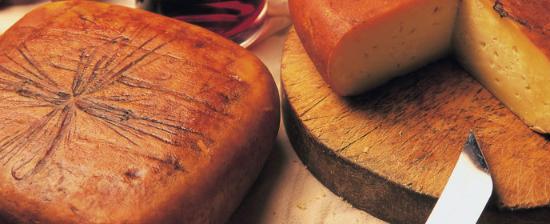
Pair this cheese with dried fruits, particularly almonds, figs and membrillo (Spanish quince jam). For wine, a mature, flaky Mahón pairs well with a medium bodied Spanish tempranillo, with fruity, cherry flavours and hints of spices and cloves.-*-
If you are interested in tasting cheese and wine in Spain, just get in contact with us to see our multi-day, single day and half-day food and wine tours in Spain. You can also find more information about the cheeses in North of Spain in this post.

Eating paella can be a pleasure, but also a pain if the wrong place is chosen. This is a post to ensure you enjoy paella in Barcelona during your stay. … Read More
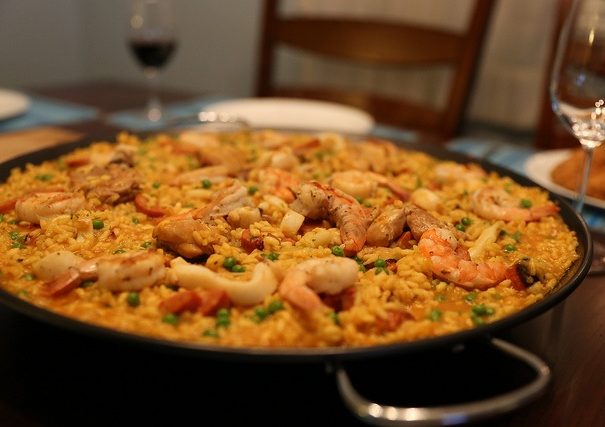
One of the great dishes of Spanish cuisine is paella. The name comes from the Latin “patella” which means ‘frying pan’. It can be enjoyed throughout Spain. Here you will find our recommendations to enjoy the best paella in Madrid … Read More
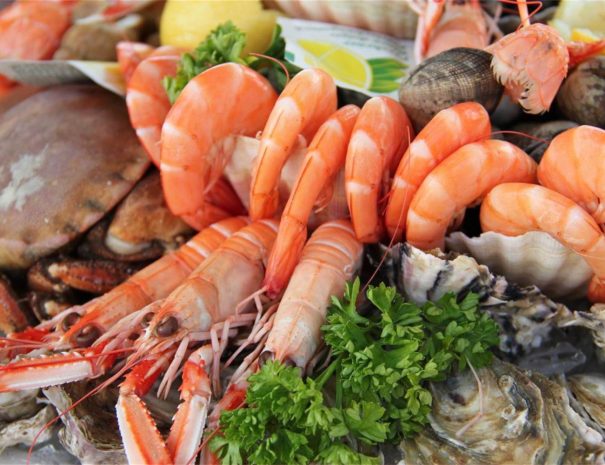
Spain is a country that expresses itself through its festivals. Each region has its own traditional celebrations and you can find them throughout the whole year, as the Spanish calendar is packed with festivals of every kind. In this post we introduce you to the best and most interesting gastronomic festivals within Spain, so that you can enjoy the festivities just like a Spaniard. … Read More
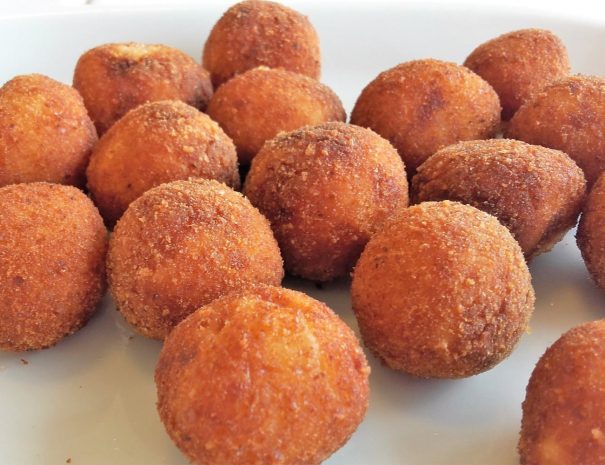
Food in Spain. Tapas are part of Spanish way of life. Spanish food is very varied and can be enjoyed in small portions, like tapas. Some famous Spanish dishes. Tapas are part of Spanish way of life. Spanish food is very varied and can be enjoyed in small portions, like tapas that go with wine or a caña (beer). … Read More
is proudly powered by WordPress